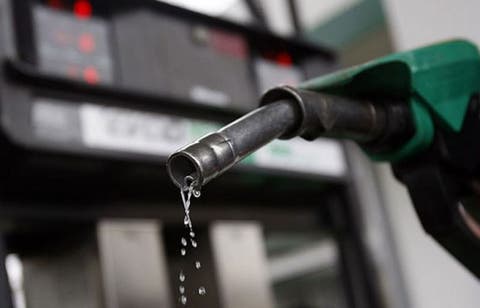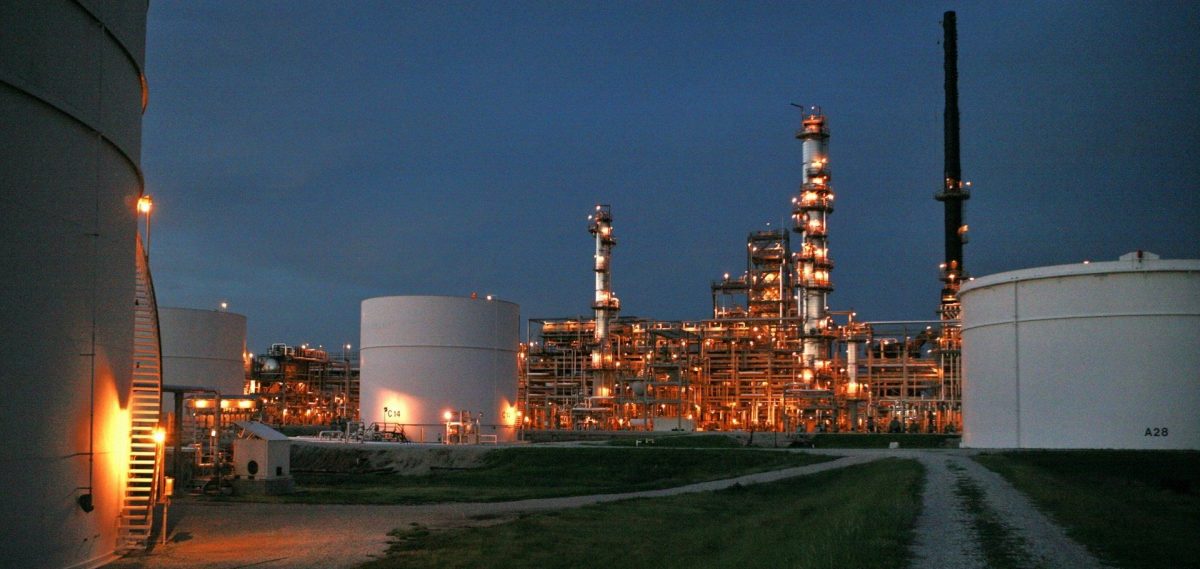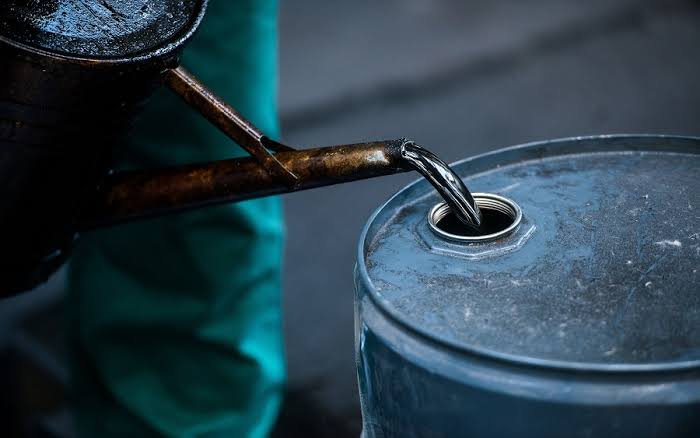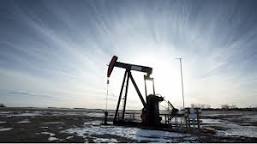AGO [/vc_column_text][/vc_column][/vc_row]PORT HARCOURT DEPOTDEPOT PRICEAVIDOR PH/NIPCO₦ 180.0SHORELINK BULK STRATEGIC PH₦ 185.0TULCAN/TSL₦ 185.0MASTERSLIQUID BULK₦ 179.5STOCKGAPNIPCO/SIGMUNDBULK STRATEGIC/NIPCOOVHCONOILSAHARA CALABAR DEPOTDEPOT PRICENORTHWEST₦183.0AMMASCOMAINLAND₦ 172.9SAMON PETFYNEFIELD₦ 173.0ALKANES₦ 173.0YSG (YOUNG SHALL GROW)₦ 175.0BLOKKS HYDEAZMAN/NIPCO₦183.0UGO HANNAH WARRI DEPOTDEPOT PRICERAINOIL OGHARANEPAL OIL & GAS / NNPC₦173.0PRUDENT OGHARA₦166.5MATRIX₦162.0CYBERNETICSTAURUS₦165.0OPTIMA₦164.0PINNACLEFRADRO₦ 165.0AYM SHAFA LAGOS DEPOTDEPOT PRICEAFRICA TERMINALS₦ 155.50IBACHEM₦ 156.0IBETO₦ 156.0MRS₦ 163.0LEIGHTEN PETINDEX₦ 156.0ETERNA₦ 156.0FOLAWIYO₦ 160.0OBATCHIPET₦ 156.0RAHAMANIYYAA ZNIPCO₦ 161.0AITEO₦...
Be ready to pay higher for fuel –PPPRA
Nigerians should be ready to pay high or low prices for petrol following the price liberalisation scheme currently in place, the Petroleum Products Pricing Regulatory Agency said on Monday.
The PPPRA is also engaging with the Central Bank of Nigeria to determine the applicable foreign exchange rates for the importation of petroleum products by oil marketers.
The agency’s Executive Secretary, Abdulkadir Saidu, said these while answering questions on the new PMS price regime in Nigeria.
He said, “What we have in place is a market reflective pricing system. Petroleum products prices will be adjusted in line with market realities and the result is what we see presently with prices on the downward slide.
“Accordingly, price will naturally be adjusted to reflect a true picture of market fundamentals at any particular period, high or low.”
He, however, noted that efforts were being made to develop alternative fuels to the PMS by deepening the utilisation of Liquefied Petroleum Gas/Compressed Natural Gas as auto gas in Nigeria.
Saidu said this would come into fruition in the medium term and would help to cushion the effect in case of a situation of high oil price.
On what the PPPRA was doing to ensure that marketers get forex at the official rate to promote price affordability, he said the agency was working with the CBN on this.
Saidu said, “The agency is engaging with the CBN to determine the applicable forex rates for the importation of petroleum products and modality for accessing the applicable forex window by marketers.
“This rate is reflected on the pricing template to determine the Expected Open Market Price of the product. This means that going forward, the guiding price to be advised will be determined based on the rates quoted by the CBN.”
The PPPRA boss said the price would guide the sale of the PMS in Nigeria, adding that the agency planned to extend the same pricing mechanism to kerosene, diesel and others.More in Home

Saidu noted that the essence of the price band was to ensure price efficiency that would be beneficial to both consumers and oil marketers.
He explained that the market-based pricing regime came into effect on March 19 following government’s approval for the adjustment of PMS price from N145 to N125/litre.
“Going forward, pricing of the PMS will reflect market fundamentals. The PPPRA will continue to monitor price trends and advise monthly guiding price for all petroleum products, based on prevailing market realities and other pricing fundamentals,” he stated.
Saidu explained that the recent plunge in oil price occasioned by the outbreak of COVID-19 and slowing global oil demand had a direct bearing on the EOMP of petrol, pushing it to a level below the pump price cap of N145/litre.
This, he said, made the government to order the Nigerian National Petroleum Corporation to review downward its ex-coastal price of petrol.
Saidu said, “Furthermore, the plunge in global crude prices made it increasingly difficult for government to finance the 2020 national budget as it was predicated on a crude price of $57 per barrel.
“The low crude oil prices, therefore, presented the opportunity to address the lingering challenges associated with the under/over-recovery regime and free up vital funds required to develop other key sectors of the economy.”
He said the new initiative would also stimulate private investment in the downstream sector and encourage the resumption of products importation by marketers, a development that would revive many dormant depots.
Saidu stated that under the new regime, PPPRA would continue to carry out all its mandates such as determining the pricing policy of petroleum products and regulating the supply and distribution of products.
He expressed optimism that the upcoming Dangote Refinery and other modular refinery projects nationwide would be able to key into the new pricing regime.
Copyright PUNCH.
28-04-2020
AGO [/vc_column_text][/vc_column][/vc_row]PORT HARCOURT DEPOTDEPOT PRICEAVIDOR PH/NIPCO₦ 180.0SHORELINK BULK STRATEGIC PHTULCAN/TSL₦ 185.0MASTERSLIQUID BULK₦ 185.0STOCKGAPNIPCO/SIGMUNDBULK STRATEGIC/NIPCOOVHCONOILSAHARA CALABAR DEPOTDEPOT PRICENORTHWEST₦183.0AMMASCOMAINLAND₦ 172.9SAMON PETFYNEFIELD₦ 173.0ALKANES₦ 173.0YSG (YOUNG SHALL GROW)₦ 175.0BLOKKS HYDEAZMAN/NIPCO₦183.0UGO HANNAH WARRI DEPOTDEPOT PRICERAINOIL OGHARANEPAL OIL & GAS / NNPC₦173.0PRUDENT OGHARA₦166.5MATRIX₦162.0CYBERNETICSTAURUS₦165.0OPTIMA₦164.0PINNACLEFRADRO₦ 165.0AYM SHAFA LAGOS DEPOTDEPOT PRICEAFRICA TERMINALS₦ 156.0IBACHEM₦ 158.0IBETO₦ 158.0MRS₦ 163.0LEIGHTEN PETINDEX₦ 156.0ETERNA₦ 156.0FOLAWIYO₦ 160.0OBATCHIPET₦ 156.0RAHAMANIYYAA ZNIPCO₦ 161.0AITEO₦ 160.0AIPEC₦...
27-04-2020
AGO [/vc_column_text][/vc_column][/vc_row]PORT HARCOURT DEPOTDEPOT PRICEAVIDOR PH/NIPCO₦ 180.0SHORELINK BULK STRATEGIC PHTULCAN/TSL₦ 185.0MASTERSLIQUID BULK₦ 185.0STOCKGAPNIPCO/SIGMUNDBULK STRATEGIC/NIPCOOVHCONOILSAHARA CALABAR DEPOTDEPOT PRICENORTHWEST₦183.0AMMASCOMAINLAND₦ 172.9SAMON PETFYNEFIELD₦ 173.0ALKANES₦ 173.0YSG (YOUNG SHALL GROW)₦ 175.0BLOKKS HYDEAZMAN/NIPCO₦183.0UGO HANNAH WARRI DEPOTDEPOT PRICERAINOIL OGHARANEPAL OIL & GAS / NNPC₦173.0PRUDENT OGHARA₦165.0MATRIX₦165.0CYBERNETICSTAURUS₦165.0OPTIMA₦164.0PINNACLEFRADRO₦ 165.0AYM SHAFA LAGOS DEPOTDEPOT PRICEAFRICA TERMINALS₦ 156.0IBACHEM₦ 156.0IBETO₦ 156.0MRS₦ 163.0LEIGHTEN PETINDEX₦ 156.0ETERNA₦ 156.0FOLAWIYO₦ 160.0OBATCHIPET₦ 156.0RAHAMANIYYAA ZNIPCO₦ 161.0AITEO₦ 160.0AIPEC₦...
Twelve New Facts to Know About Current Oil Market, Price
What is the current market price of Nigeria’s Bonny Light?
The price of Bonny Light, Nigeria’s premium oil grade is currently hovering at $16.94 per barrel in the international market.
Why the sudden rise in price, barely a week after it had dropped to as low as $5.30 per barrel?
The price is mainly driven by ‘artificial demand’ caused by efforts of some countries, especially China and United States to stockpile cheap oil for various purposes.
Why are these countries stockpiling the cheap oil?
Oil can be stockpiled for many reasons, including business and building of strategic reserves, which could be utilised to meet future demand or even released into the market to achieve pre-determined national interest.
How comfortable is the Federal Government of Nigeria with the current price?
No, it is not, apparently because the 2020 budget was first benchmarked on $57 and 2.3 million barrels per day, mb/d output, and later reduced to $30 and 1.42 mb/d because of the negative impact of Coronavirus pandemic. Relevant government agencies are currently watching and looking forward to a possible leap in price.
Will it ever rise to the $30 and above?
Certainly, it will not be within a very short period because of the impact of the pandemic. Nevertheless, oil price could hit $30 and above when a lasting solution would have been found to the pandemic.
Should we expect oil price to ever hit the pre-pandemic $60 regime?
As far as the pandemic remains, it would not be possible for the price to rise to that level. However, it is a possibility much later when major oil consuming countries, including China, accounting for about one third of the global demand growth would have completed the process of rebuilding their economies.
Can you provide further explanation?
The pandemic culminated in the shutdown of the domestic economies of many nations as well as global economy, which are mainly driven by oil-related fuels. This means that to reverse the trend, we need to conquer it before restreaming operations in many sectors, including manufacturing, transportation, agriculture, tourism, banking, education and Real Estate that oil-related fuels for operations. It is the collective activities in these and other sectors at the post COVID-19 era that would determine demand, and by extension oil price.
Why can’t the Organisation of Petroleum Exporting Countries, OPEC, which Nigeria is a member fix the price to enable its members make more money?
The organisation cannot fix price because other countries, other than its members, such as United States and Russia also produce and export commercial oil to the global market.Close
Why can’t OPEC members embark on a ‘deep oil cut’ in order to cause shortage, thus influencing price?
It cannot do that because it is not a cartel. In other words, non-OPEC producers also control much oil, meaning that the cooperation of all stakeholders is key.
With its ‘minor cuts’ do we still have much excess oil in the market?
Yes, we still have much excess oil left in the market, despite the decision of OPEC members to adjust downwards their overall crude oil production by 9.7 mb/d, starting on 1 May 2020, for an initial period of two months that concludes on 30 June 2020.
However, the situation can change in the coming months. Remember, OPEC had also decided for the subsequent period of six months, from 1 July 2020 to 31 December 2020, to cut 7.7 mb/d, which will be followed by a 5.8 mb/d adjustment for a period of 16 months, from 1 January 2021 to 30 April 2022.
What should Nigeria and others do to support OPEC at this time?
First, Nigeria should respect its OPEC quota as provided by OPEC. Second, Nigeria and others should also work with OPEC, currently engaging with relevant stakeholders, including non-OPEC producers and consumers for a reason. Everyone is important.
As a nation, what should Nigeria be planning to do as part of its post COVID-19 economic reconstruction programme?
The government needs to be less dependent on using the price of oil to define its budget. It should take practical steps in rebuilding its economy away from oil.
Vanguard
Read the original article on Vanguard.
25-04-2020
AGO [/vc_column_text][/vc_column][/vc_row]PORT HARCOURT DEPOTDEPOT PRICEAVIDOR PH/NIPCO₦ 180.0SHORELINK BULK STRATEGIC PHTULCAN/TSLMASTERSLIQUID BULK₦ 180.0STOCKGAPNIPCO/SIGMUND₦ 180.0BULK STRATEGIC/NIPCOOVHCONOILSAHARA CALABAR DEPOTDEPOT PRICENORTHWEST₦183.0AMMASCOMAINLAND₦ 175.0SAMON PETFYNEFIELD₦ 176.0ALKANES₦ 175.5YSG (YOUNG SHALL GROW)₦ 175.5BLOKKS HYDEAZMAN/NIPCO₦183.0UGO HANNAH WARRI DEPOTDEPOT PRICERAINOIL OGHARA₦172.0NEPAL OIL & GAS / NNPC₦173.0PRUDENT OGHARA₦165.0MATRIX₦164.0CYBERNETICSTAURUS₦165.0OPTIMA₦165.0PINNACLEAYM SHAFA LAGOS DEPOTDEPOT PRICEAFRICA TERMINALS₦ 169.0IBACHEM₦ 162.0IBETO₦ 162.0MRS₦ 170.0LEIGHTEN PETINDEX₦ 168.0ETERNA₦ 168.0FOLAWIYO₦ 167.0OBATCHIPET₦ 166.0RAHAMANIYYAA ZNIPCO₦ 167.0AITEO₦ 170.0AIPEC₦ 166.5SAHARA₦...
24-04-2020
AGO [/vc_column_text][/vc_column][/vc_row]PORT HARCOURT DEPOTDEPOT PRICEAVIDOR PH/NIPCO₦ 180.0SHORELINK BULK STRATEGIC PHTULCAN/TSLMASTERSLIQUID BULK₦ 180.0STOCKGAPNIPCO/SIGMUND₦ 180.0BULK STRATEGIC/NIPCOOVHCONOILSAHARA CALABAR DEPOTDEPOT PRICENORTHWEST₦183.0AMMASCOMAINLAND₦ 175.0SAMON PETFYNEFIELD₦ 176.0ALKANES₦ 175.5YSG (YOUNG SHALL GROW)₦ 175.5BLOKKS HYDEAZMAN/NIPCO₦183.0UGO HANNAH WARRI DEPOTDEPOT PRICERAINOIL OGHARA₦172.0NEPAL OIL & GAS / NNPC₦173.0PRUDENT OGHARA₦165.0MATRIX₦164.0CYBERNETICSTAURUS₦165.0OPTIMA₦165.0PINNACLEAYM SHAFA LAGOS DEPOTDEPOT PRICEAFRICA TERMINALS₦ 169.0IBACHEM₦ 162.0IBETO₦ 162.0MRS₦ 170.0LEIGHTEN PETINDEX₦ 168.0ETERNA₦ 168.0FOLAWIYO₦ 167.0OBATCHIPET₦ 166.0RAHAMANIYYAA ZNIPCO₦ 167.0AITEO₦ 170.0AIPEC₦ 166.5SAHARA₦...
23-04-2020
AGO [/vc_column_text][/vc_column][/vc_row]PORT HARCOURT DEPOTDEPOT PRICEAVIDOR PH/NIPCO₦ 180.0SHORELINK BULK STRATEGIC PHTULCAN/TSLMASTERSLIQUID BULK₦ 180.0STOCKGAPNIPCO/SIGMUND₦ 180.0BULK STRATEGIC/NIPCOOVHCONOILSAHARA CALABAR DEPOTDEPOT PRICENORTHWEST₦183.0AMMASCOMAINLAND₦ 175.0SAMON PETFYNEFIELD₦ 176.0ALKANES₦ 175.5YSG (YOUNG SHALL GROW)₦ 175.5BLOKKS HYDEAZMAN/NIPCO₦183.0UGO HANNAH WARRI DEPOTDEPOT PRICERAINOIL OGHARA₦172.0NEPAL OIL & GAS / NNPC₦173.0PRUDENT OGHARA₦170.0MATRIX₦164.0CYBERNETICSTAURUS₦165.0OPTIMA₦167.0PINNACLEAYM SHAFA LAGOS DEPOTDEPOT PRICEAFRICA TERMINALS₦ 169.0IBACHEM₦ 164.0IBETO₦ 164.0MRS₦ 170.0LEIGHTEN PETINDEX₦ 168.0ETERNA₦ 168.0FOLAWIYO₦ 167.0OBATCHIPET₦ 166.0RAHAMANIYYAA ZNIPCO₦ 167.0AITEO₦ 170.0AIPEC₦ 166.5SAHARA₦...
22-04-2020
AGO [/vc_column_text][/vc_column][/vc_row]PORT HARCOURT DEPOTDEPOT PRICEAVIDOR PH/NIPCO₦ 180.0SHORELINK BULK STRATEGIC PHTULCAN/TSLMASTERSLIQUID BULK₦ 180.0STOCKGAPNIPCO/SIGMUND₦ 180.0BULK STRATEGIC/NIPCOOVHCONOILSAHARA CALABAR DEPOTDEPOT PRICENORTHWEST₦183.0AMMASCOMAINLAND₦ 175.0SAMON PETFYNEFIELD₦ 176.0ALKANES₦ 175.5YSG (YOUNG SHALL GROW)₦ 175.5BLOKKS HYDEAZMAN/NIPCO₦183.0UGO HANNAH WARRI DEPOTDEPOT PRICERAINOIL OGHARA₦172.0NEPAL OIL & GAS / NNPC₦173.0PRUDENT OGHARA₦170.0MATRIX₦164.0CYBERNETICSTAURUS₦169.0OPTIMA₦170.0PINNACLEAYM SHAFA LAGOS DEPOTDEPOT PRICEAFRICA TERMINALS₦ 169.0IBACHEM₦ 166.0IBETO₦ 166.0MRS₦ 170.0LEIGHTEN PETINDEX₦ 168.0ETERNA₦ 168.0FOLAWIYO₦ 167.0OBATCHIPET₦ 166.0RAHAMANIYYAA ZNIPCO₦ 170.0AITEO₦ 170.0AIPEC₦ 166.5SAHARA₦...
FG spent N1.96tn on JV oil assets in 2019
The Federal Government spent a total of N1.96tn in 2019 on oil and gas assets being developed through joint ventures with private firms, mostly international oil companies, data from the Nigerian National Petroleum Corporation have shown.
The NNPC, which represents the Federal Government in the JVs, has an obligation to make cash call payment for the development of the assets.
In 2018, the corporation used N1.83tn, more than half of the total revenue (N3.11tn) generated from oil and gas sales, for the payment of the JV cash calls.
The government generated N3.05tn from the sale of crude oil and gas in 2019, out of which N1.96tn was transferred into the joint venture cash call account while the balance of N1.09tn went into the Federation Account, the NNPC data revealed.
The dollar allocation to the JV cash call account was $3.45bn (from oil and gas export receipt of $4.84bn) while the naira portion was N907.91bn (from domestic oil and gas sale proceeds of N1.41tn).
The NNPC said the transfers were made to the JV cash call account as first line charge “to guarantee current and future production”.
The federation crude oil and gas lifting are classified into equity export and domestic, both of which are lifted and marketed by the NNPC and the proceeds remitted into the Federation Account.
The equity export receipts, after adjusting for the JV cash calls, are paid directly into the Federation Account domiciled in the Central Bank of Nigeria.
Domestic crude oil of 445,000 barrels per day is allocated for refining to meet domestic products supply.
Payments are effected to the Federation Account by the NNPC after removing crude and product losses, pipeline repairs and management cost incurred.
The nation’s oil and gas production structure is majorly split between the JV (onshore and in shallow waters) with foreign and local firms, and Production Sharing Contracts in deep water offshore.
The NNPC owns 55 per cent of the JV operated by Shell, and 60 per cent of all the others.
Under the JV arrangement, both the NNPC and the private operators contribute to the funding of operations in the proportion of their equity holdings and generally receive the produced crude oil in the same ratio.
Production from the JV assets has declined over the past few years, partly due to funding constraints occasioned by the NNPC’s inability to fulfil its cash call obligations as and when due.
The JVs accounted for 32.07 per cent of the average daily production of 1.98 million barrels recorded in November 2019 while the PSCs contributed 41.91 per cent, according to the latest NNPC data.
“For a while now, there have been calls for the conversion from the unincorporated joint venture model to the incorporated JV model, especially because of issues such as government’s cash call challenges, lending challenges and governance issues. These calls have become even stronger now,” an energy law expert, Dr Ayodele Oni, said.
According to him, funding of operations under the UJVs remains difficult for the NNPC for various reasons such as competing needs for the dwindling federal revenues.
Oni, who is a partner at Bloomfield Law Practice, said, “Although, the NNPC has devised some creative financing methods recently, it is agreed that there is still the urgent need to reconsider the current UJV model.”
According to him, the conversion of the UJV arrangements to limited liability companies will have the NNPC and its JV partners as shareholders.
“The IJV model should aid the financing of joint venture projects. Incorporation benefits include a separate legal personality from owners and ability of the IJVs to independently raise finance for petroleum operations without reliance on, and/or recourse to, its shareholders,” he added.
In March 2019, the Federal Government announced plans to cut its stakes in the JV assets to 40 per cent in a restructuring programme expected to be completed last year.
The then Minister of Budget and National Planning, Senator Udo Udoma, said the government would intensify efforts to improve its finances with the “immediate commencement of the restructuring of the joint venture oil assets so as to reduce government shareholding to 40 per cent.”
The 2019 approved budget presentation showed that N710bn was expected to be generated from the oil assets ownership restructuring in the 2018 budget but it was not achieved in both years.
The Federal Government did not include the sale of the JV oil asset stakes as a source of expected revenue in the 2020 budget, the highlights presented by the Minister of Finance, Budget and National Planning, Mrs Zainab Ahmed, showed.
“I don’t think putting it in the budget is the right thing to do. It should be put aside to address specific infrastructure needs,” an energy expert and former board member of the NNPC, Alhaji Abdullahi Bukar, told our correspondent.
Noting that the IOCs had divested some assets in recent years, he said the government should follow suit and sell to Nigerians to further grow local capacity.
“I think the Federal Government should consider selling its shares in the JVs,” he added.
Bukar, however, said this might not be the right time to sell, given the current realities in the oil and gas industry.
The sale of some stakes in the JV assets means the government’s cash call obligation will reduce.
A former Chairman, Petroleum Club, Lagos, Mr Godswill Ihetu, said the government did not really pursue the planned sale of part of its stakes.
He said doing that at this time would be tantamount to panic selling, adding that the sale of the nation’s ailing refineries should be the priority now.
The regime of the President, Major General Muhammadu Buhari (retd.), had in its Economic Recovery and Growth Plan released in 2017 said it would reduce government’s stakes in the JV oil assets, refineries and other downstream subsidiaries such as pipelines and depots.
Source: Punch via Energy mix report


